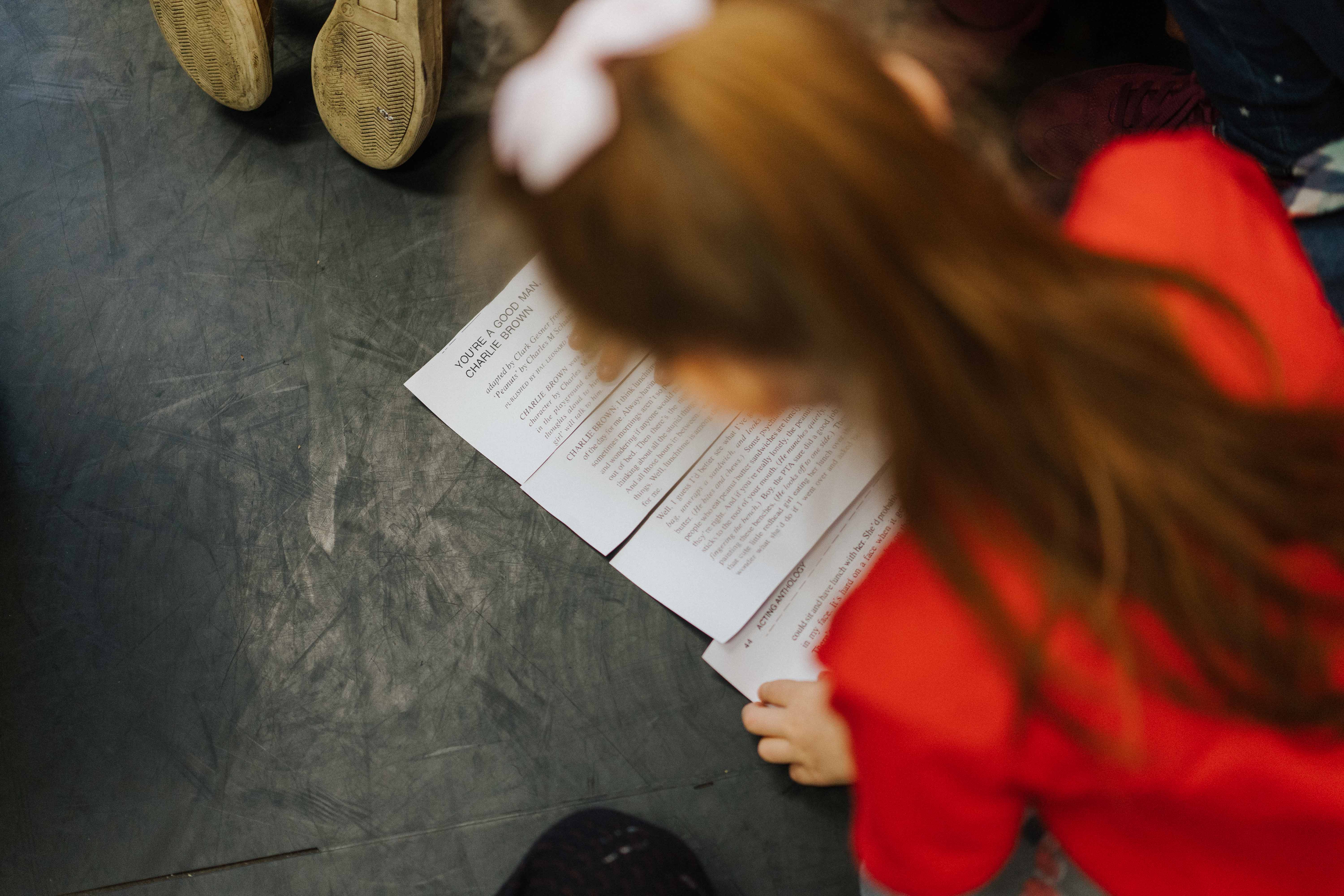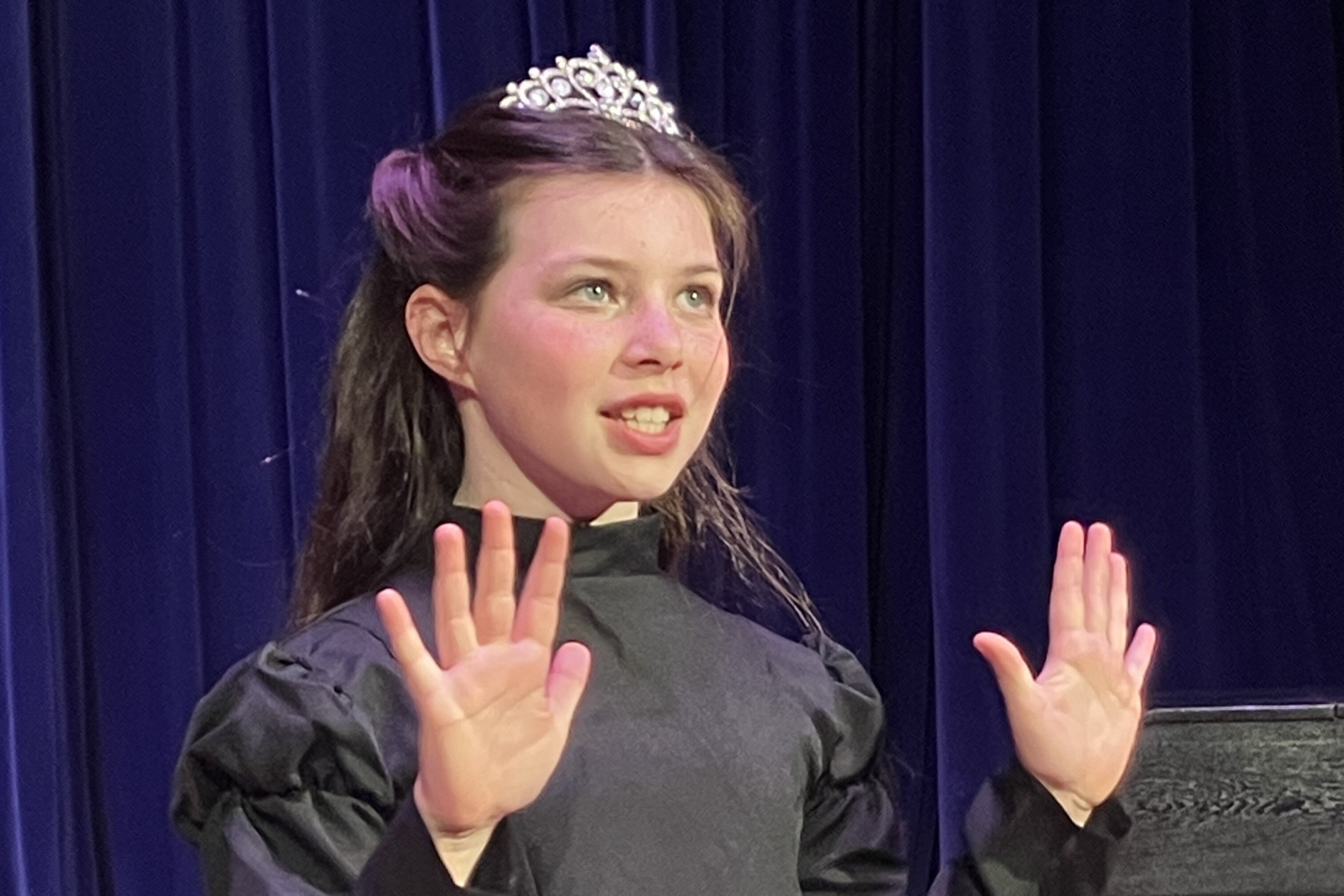
Exploring Acting Tasks: Character Development
BY: Nicola King
06 March 2024
Character Development is, for some grades, a new task in on our 2023 Acting specifications, introduced from Grade 2 for Solo and Grade 3 for Pair exams. The Character Development Task asks candidates to rework or modify their pieces in order to demonstrate more understanding of their performed pieces and characters. In this blog we will look at what is involved in this task and how to prepare your candidate.
From the Foundation grades through to Grade 7 the candidate is asked to perform an original devised scene (or scenes — dependent on the grade) using a character from their performance pieces. The requirements or context for this original scene differ between grades, for example in a Grade 3 Solo exam the candidate is asked to devise a scene that might take place before or after the events in their performed scene, at Grade 4 they are asked to work with an object that is relevant to their character.
In all the Character Development tasks the candidate is being asked to explore one of their characters ‘off text’ - in other words we want candidates to explore their character in greater depth, to consider what they know and understand about the character from the script and use this in developing a new scene for that character. We are encouraging candidates to use their imagination and consider how their character would react or behave in different situations, and what can you learn about them, or the narrative, through this.
The tasks encourage important development and rehearsal skills, as well as creative thinking. The candidate will use rehearsal tools, such as improvisation or hot seating, in the process of developing the scene which will then, through repetition, be refined into a prepared performance. This task reflects what is already happening in lesson time; the candidate is simply sharing part of their rehearsal process with the examiner.
It’s important to remember that there is never just one possible interpretation, and candidates should be encouraged to think of a range of ideas for this task and explore them through improvisation rather than write a scene and then learn it.
At Grade 6 candidates are asked to explore a theme from the published piece, these could be themes such as friendship, love, loneliness, etc. and the devised scene can give the character opportunity to explore these feelings in greater detail. For example, if in Task 1 the candidate performed the title role in King Henry V by William Shakespeare, in the Character Development Task they could explore the theme of remorse and guilt, with Henry talking in modern-day language to a therapist about his relationship with his father.
At Grade 7 the task becomes more complex as we are now asking the candidate to the explore a theme from the published text and convey a different emotion but what do we mean by this? Here candidates should consider the themes of the play and the emotion they explored in their prepared piece and create a scenario which allows their character to respond with a different emotion. An example of this in a Pair exam might be; the candidates performed the roles of Dr Stockman and Hostad in An Enemy of the People by Henrik Ibsen: the original scene shows the two men in Stockman’s home, Hovstad a radical journalist determined to challenge corruption and Stockman more reasoning and hesitant to make waves. Exploring the theme of public opinion, a new scene could show Dr Stockman excited at the potential to improve the health of the local community and Hovstad agreeing to write an article in support of it, revealing how the characters relate to one another in this situation and their different emotions.
At Grade 8, for both Solo and Pair, the Character Development task changes and now the candidate(s) performs a prepared modification of one of their prepared pieces from Tasks 1–3. The modification must show their chosen character in a different context that explores a new interpretation of the scene.
This is not ‘off text’ work like in the other grades, the candidate is performing the same scene, the same lines, but there is a creative consideration of that scene and the character through changing the given circumstances. The task is designed to explore the candidate’s understanding of the character and the scene, and their ability to sustain characterisation in different circumstances. So, in short, the candidate is using the original speech to create a new environment or set of circumstances in order to see what it reveals about the character and the text.
When choosing a different context, candidates would also need to consider how that context affects the character and how it contrasts with the original. This might include a change in genre or style, e.g. Brechtian instead of restoration comedy, or a change in physicality and movement.
An example of this could be- the candidate performed the role of Clytemnestra in Agamemnon by Aeschylus: in the original scene the character is in front of the altar where she has dumped her husband’s body and is addressing the Chorus. A new context could place Clytemnestra at a fairground, enjoying the various rides or side-shows as she talks to a friend about what she has done.
In all grades we are looking for the candidate's ability to sustain their original character and use their own imagination while sharing the information with an audience. We expect there to be some dialogue and structure to help develop the scene and as the grades progress the imaginative dramatic choices should become more complex. There should be evidence of creative and imaginative choices; how the candidate inhabits the character and how voice, body and space are used to create the environment.
For more support with Character Development watch this excellent video where you can hear advice from our Lead Senior Examiner Joanna Harte about approaching this task. For guidance on the wider Acting syllabus, take a look at our resource page.




Comments & Replies